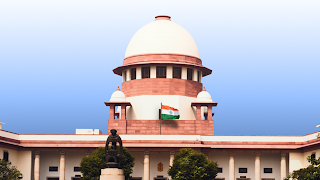From Agreement to Dispute: Unpacking the DDA Land Case and its Implications on Property Rights
The Supreme Court's decision in Delhi Development Authority v. S.G.G. Towers (P) Ltd., Civil Appeal No. 1972 of 2011, 2025 INSC 337, highlights the complexities of property transactions involving government land and the critical distinction between an agreement to lease and a registered lease deed.
This case, which spanned decades, revolved around a plot of land in Delhi, originally subject to an agreement to lease between the Delhi Improvement Trust (now DDA) and M/s Mehta Constructions in 1957.
A crucial aspect of the case was that the formal lease deed was never executed due to non-compliance by M/s Mehta Constructions. Clause 24 of the agreement explicitly stated that the agreement would not confer any rights, title, or interest until the lease was executed and registered. Subsequently, M/s Mehta Constructions entered into an agreement to sell the plot to M/s Pure Drinks, who later faced liquidation. In the liquidation proceedings, S.G.G. Towers purchased the plot in an auction.
The DDA contested the auction, arguing that M/s Mehta Constructions never acquired valid leasehold rights and, therefore, could not transfer any such rights. The Supreme Court upheld the DDA's argument, ruling that S.G.G. Towers did not acquire ownership or leasehold rights to the plot. The court emphasized that S.G.G. Towers could only claim the rights M/s Mehta Constructions had under the agreement, which were limited.
The case has significant implications for property transactions, especially those involving Nazul land, which is government-owned land managed by authorities like the DDA. The disposal of Nazul land is governed by specific regulations under the Delhi Development Act, 1957, and the Delhi Development Authority (Disposal of Developed Nazul Land) Rules, 1981.
The Supreme Court's decision underscores the necessity of adhering to these regulations and formalizing lease agreements to create valid and legally enforceable property rights. It also clarifies that purchasing property in an "as is where is" auction does not guarantee a clear title, and buyers must conduct thorough due diligence to ascertain the existing encumbrances and potential defects in the title. S.G.G. Towers can apply to the DDA to regularize the transaction by paying unearned income or other applicable charges. The DDA can pursue legal remedies for recovery of possession and/or unearned income against S.G.G. Towers.
